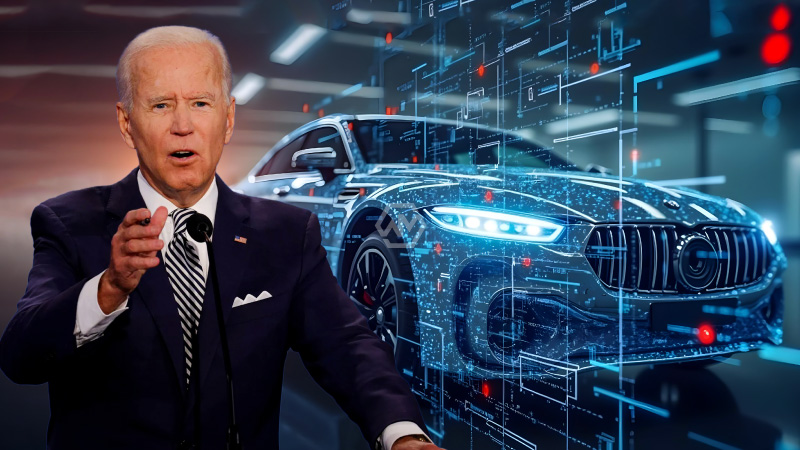- New rule bars Chinese and Russian tech from U.S. passenger cars.
- Aimed at limiting national security risks related to foreign technology.
- Part of broader U.S. efforts to curb Chinese influence in key industries.
The U.S. government has finalized a rule banning Chinese and Russian technology from being used in passenger cars sold within the country, citing concerns about national security.
As cars become more technologically advanced and connected, there is increasing scrutiny on the involvement of foreign-made software and hardware.
US Moves to Block Foreign Tech in Cars Amid Growing National Security Risks
The U.S. has taken decisive action to prohibit Chinese and Russian technology from being incorporated into cars sold within the country. The move stems from mounting concerns about national security and aims to safeguard against potential vulnerabilities that could arise from foreign-made software and hardware. The ban encompasses both hardware and software, impacting the broader automotive sector and limiting the role of foreign technology in a critical industry.
With cars increasingly relying on complex electronic systems and connectivity, officials are concerned about the risks posed by adversarial nations like China and Russia. In recent years, both countries have been accused of using technology to gain strategic advantages, including the possibility of exploiting sensitive data or tampering with vehicle systems. The new rule addresses these concerns by restricting foreign influence in the automotive market, a sector seen as vital to U.S. economic and security interests.
The decision is a key part of the Biden administration‘s larger strategy to curb the influence of China and Russia in sensitive industries, including technology, defense, and infrastructure. National Economic Advisor Lael Brainard reiterated that China is seeking to dominate the future of the auto industry, and connected vehicles could pose risks if linked to foreign-made systems that could potentially allow for interference or espionage.
This regulatory action is consistent with the administration’s previous steps to limit the use of Chinese-made technology in other sectors, including drones and telecommunications. By expanding the ban to include passenger cars, the U.S. is sending a strong message about its commitment to safeguarding national security and preventing adversaries from exploiting critical technologies.
The ban on Chinese and Russian technology in U.S. cars reflects growing concerns over national security, signaling a more aggressive stance against foreign influence in critical industries.
“Cars today aren’t just steel on wheels — they’re computers,” said Commerce Secretary Gina



